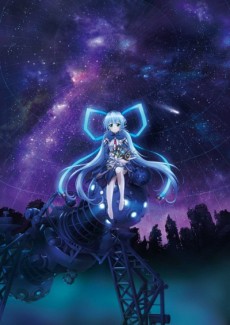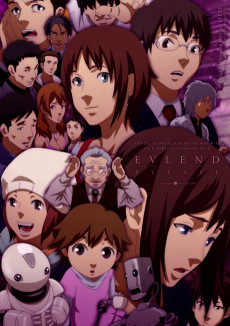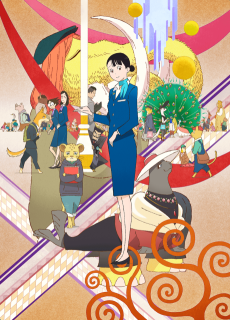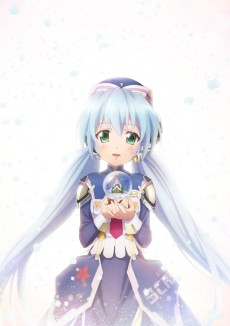APOCALYPSE HOTEL
STATUS
COMPLETE
EPISODES
12
RELEASE
June 25, 2025
LENGTH
23 min
DESCRIPTION
Following the collapse of civilization, one storied hotel stands among the ruins of Tokyo’s Ginza district. Overrun by nature, this lone hotel continues to defy humanity’s collapse. Current guests: zero. Check-ins scheduled today: zero. Yesterday’s website traffic: zero. Enter with caution in this story of survival and mystery in a world where the memory of humanity begins to fade.
(Source: Crunchyroll)
CAST

Yachiyo
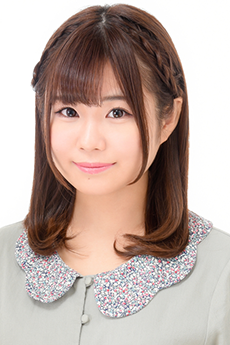
Saho Shirasu

Ponko

Sumire Morohoshi

Kankyou Check Robo
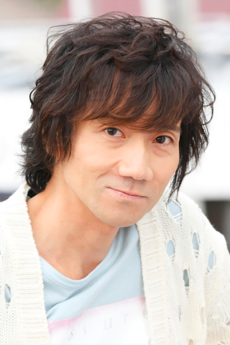
Shinichirou Miki

Doorman Robo
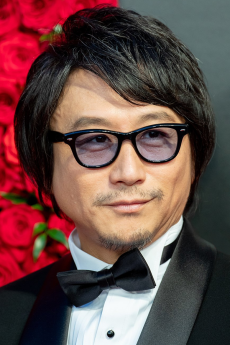
Hiroki Touchi

Tabibito Uchuujin
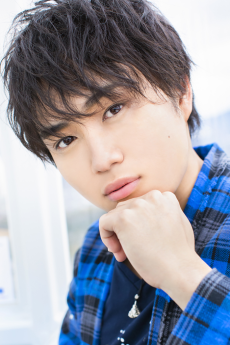
Yukihiro Nozuyama

Mujina
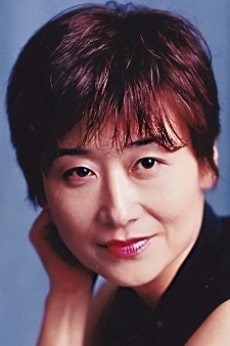
Yoshiko Sakakibara

Mami

Takako Honda

Owner
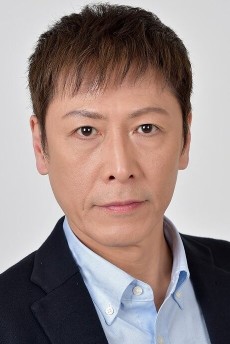
Hiroyuki Kinoshita

Fuguri

Mutsumi Tamura

Bunbuku
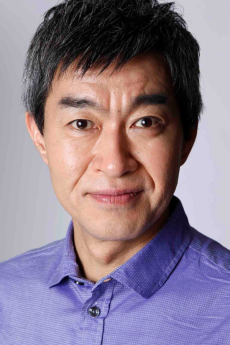
Choo

Ponstin
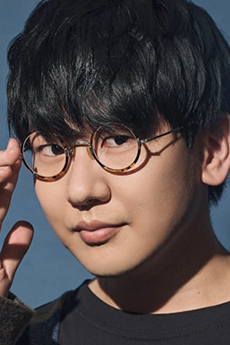
Natsuki Hanae

Tamako
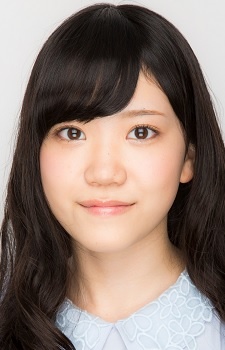
Hina Kino

Kowamote Uchuujin
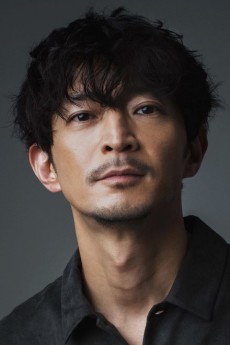
Kenjirou Tsuda

Onwa Uchuujin

Takahide Adachi
EPISODES
Dubbed
RELATED TO APOCALYPSE HOTEL
REVIEWS

marioink508
92/100Check-In to ChaosContinue on AniList
_This review contains __LIGHT SPOILERS__ for __Apocalypse Hotel__._ [__Check-In to Chaos__](https://anilist.co/user/marioink508/) __A chaotic stay at a post-apocalyptic hotel run by silly hotelier robots__ — _extraterrestrial experiences filled with shit, giant worms, murderers, and hot springs?_ --- [__Story - 8.3/10__](https://anilist.co/user/marioink508/) Bear with me, this series is hard to pitch. Its strength lies not in individual ideas but in how smoothly it weaves them together, and in its pure chaos. So trying to speak on each individual thing that made it great was a hard task, when the beauty comes from harmony, not from the concepts on their own. I apologize if this review reads as repetitive or underwhelming. 'Apocalypse Hotel’ is a one-off original series from Studio Cygames, a studio with some really amazing shows this year under their name, home to the ‘Uma Musume’ franchise, as well as producing 'The Summer Hikaru Died' this year. Once I realized it was a Cygames original, I knew to expect great animation, solid storytelling, and stunning character design. This series has a brilliant premise and is an absolute blast to watch each week. I love post-apocalyptic shows, and this one does not disappoint. Set in a post-apocalyptic world hundreds of years after humanity’s departure. It follows highly intelligent robots and extraterrestrials who run an abandoned hotel, where every guest matters. It is quite an episodic series, a lot of the moments feel really random but fun. No episode fails to make you smile. From the core cast to the briefest extras, every character feels unique and hilarious. from the amazing main cast, to the episodic characters with low implications, every single one feels unique and comedic. A world filled with beauty and an animation style and quality to push this to higher levels. This series has some amazing comedy and creative direction for the whole runtime. This makes it a dark horse of Spring 2025, and maybe of the entire year. we'll have to wait and see.  #####
#####_Episode 11 'Wag Your Tail, but Never Wag a Shift!'_
This series shines brightest in its character interactions, along with the whole hotel setting and the weird extraterrestrial customs. This whole dynamic brings the best out of this show, and the more I watched, and went through the arcs, I realized it excels in its episodic setup... random jokes, bizarre scenarios, and unbridled chaos, rather than an overarching plots. And I'm saying that as this show does follow a base narrative even for it's episodic structure a narrative that is overshadowed most of the time, making for what I find the best in this series, but there is a specific arc, that shines a light on this base, an arc that, I felt was the most detached from what made this show so good. Fortunately, this does not linger for long, but, it does give you the exact validation you need to realize just how great the episodic structure is for this series.
When it comes to speaking about the actual episodes on their own, it's actually quite a hard thing to do. A lot of this series are character interactions and hotel management, which on their own don't sound like much fun, but when you put everything together you get some of the funnies moments. This show is gloriously chaotic... frequent time skips, absurd gags, evolving inside jokes, and even dramatic moments.
I honestly had almost no complaints about this series, outside of the more story based moments that felt somewhat serious, which took from the charm of the show, as well as the fact that I'm not the biggest episodic anime enjoyer, but this series still managed to entertain me a lot, and even changed my view on this space in the anime industry.

Episode 11 'Wag Your Tail, but Never Wag a Shift!'
Characters - 9.5/10
The characters are the main factor for this series success. Its protagonist, Yachiyo the hotelier robot, feels remarkably human despite her mechanical nature She is a serious character, but has many quirks that add some heavy comedic value. Her achievement system is a fantastic gimmick, yielding hilarious moments, and fits her perfectionism in the decayed world. The rest of the cast is compiled by either the group of working hotel robots, having the likes of the Doorman Robot which was a great character in the early moments of the series, to falling into becoming just someone you would look for later on inside the chaos. It is characters like this that make for such an amazing experience, those who get their time, and then add value in the background later.Then we have the tanuki family. A group of extraterrestrials that came on earth, and stayed with the hotel for a whole lot of years. It is genuinely hard to keep track of years in this series, as the amount of time skips are insane, yet they never feel like too much. In this family we have one very important character, Ponko, one of the lives of this series, and one of the greatest characters in the series, she is such a fun and energetic presence throughout the series, we experience her whole life due to time skips, and it's amazing. From her being a child and supporting Yachiyo as a part-timer at the hotel, to her growing up, running the hotel for a while, finding love, marrying, to having a kid, to her child becoming a part-time hotelier? it’s absurd how perfectly this comes full circle, yet it is so good, and makes for such a great experience when watching.

Episode 6 'Our Only Vice Is Service'
On the other hand we have the extraterrestrials that come on earth to stay at the hotel. Be that the early ones that don't even know what a hotel is and make for some really funny starting interactions, or be that the ones that are at the hotel when it becomes popular and the spot to be at. All these characters are strictly episodic, appearing for at most two episodes, but when I say they are extremely unique and the creativity behind the interactions as well as the backgrounds and their design are amazing, I totally mean it. I don't think I've seen a series put so much attention into character designs in a long time, I feel like a lot of alien designs this years are really generic and overused, so seeing the amount of unique takes in this series was such a fresh experience, mind you, there are tens of original designs in this series, some purely background, yet each receives meticulous design attention, I just find it amazing.

Episode 9 'Bookmark Today's Page in Our Guests' Lives'
Visuals - 9.7/10
Visually, this series boasts a stunning and unique style, vibrant and teeming with life. The world building design in the post-apocalyptic world is just as amazing, character designs too, but I mentioned that enough already. Amazing scenery, great fluid animation, funny expressions, amazing action sequences. This show has it all. There are some moments, especially towards the end that feel serene, from the incredible vegetation, environment and lighting. We can also see CGI use, and it is seamless, such great use of CGI, it's not overly used but when it is you can tell it's done well.

Episode 11 'Wag Your Tail, but Never Wag a Shift!'
Closing Notes
In the end, I feel like 'Apocalypse Hotel' is a really impressive show of creative direction, comedy that comes from chaos, a story filled with random moments and silly situations that just make you laugh and be invested for the whole time. A series that is worthy of praise, for how harmoniously it manages to combine so many foreign concepts into one. Making the whole show feel alive, without throwing anything off balance. A series where removing any single element would diminish its impact. I really do feel that the character interactions in this series make for some of the funniest moments I've seen in the comedy genre.
Enjoyment Level - 9.3/10
Favorite Character - Ponko
Favorite Episode - Episode 10 ‘Clean Sheets Symbolize Pure Hearts’
FOR MORE CURRENT SEASON ANIME REVIEWS CHECK OUT THIS LINK
ZNote
90/100This review comes with a complementary shower cap.Continue on AniList(Video includes audio. Be sure to unmute) In a world destroyed and depopulated, there would be but a few actually meaningful pillars left standing that somehow provide evidence that it was once teeming with life. In a series that wanted to treat such an apocalyptic scenario with the stone-cold seriousness of what such a situation would demand, it might opt for a museum or library, places designed to preserve and protect the records of humankind. And perhaps then it could provide some kind of grand introspection about how the true meaning of such records was that, though humanity or the planet has entered its twilight, they were here at one point. It's rather telling therefore that two such “after the end” otaku properties primarily involve robots and places that don’t involve any of that. When Ashinano Hitoshi wrote Yokohama Shopping Log back in 1994, he imagined a world that was dying, but it was one I would gladly live in. The people (and Alpha, the café-running robot) have accepted the end and choose to spend the remainder of their time enjoying the peace and tranquility. The sea rises, Misago spends time with the children, and Alpha wonders if her master will return. But until such time, she’ll pour a cup of coffee with a smile on her face, gaze at the sun, and take photographs of a moment in time.
And I can think of no higher compliment that I could give Apocalypse Hotel than I would give anything to check in to a room there for a time, or perhaps even work there as an employee. To be clear, this anime is not directly a successor to Yokohama Shopping Log, but it likewise is informed by its influence even in the midst of all its differences. Standing eternal watch over its microscopic corner of the planet, the Acting Acting Manager robot Yachiyo spends every day at the check-in desk of Gingarou Hotel, waiting for the moment that humanity will return through the doors generously opened by the Doorman Robot (assuming he doesn’t need water splashed on him again). Everything until then will be meticulously maintained, and even as the number of robots on “indefinite leave” increases over time, Yachiyo always stays steady…or seems to, anyway.
That kind of steadiness spreads itself into the setting: in a 24 June 2025 interview which involved series writer Murakoshi Shigeru, he mentions the deliberate attempt to make Ginza the location for the series. According to him, Ginza as a real-world setting walks the line between the past and the future, with Edo-period traditions intermixing with Western culture and influence. Fashioning a futuristic fictitious hotel out of a real department store, all while occupying the same general space as an old kabuki theater or small shrine in-universe, certainly seems like the way to do so. With such a backdrop, one might think that a NieR: Automata approach of exploring each landscape or location and feeling the ephemerality through the wind and quiet expanses would make the loneliness of Yachiyo, her workers, and the still-shining Gingarou Hotel even more poignant.


(Apocalypse Hotel does not do a lot of strolling around Ginza, but the select times that it does always have a defined purpose within the story either for its characters or adding details to the city’s portrait) The series generally chooses not to do so, and there’s something so dismaying and delightful about such a framing. Despite all the literal decay of the surrounding buildings and the “decay” of the overgrow consuming the rubble, Apocalypse Hotel hypercondenses the “life of Ginza” into this one single location, an inherent juxtaposition between the traditional manner of Japanese hospitality and caring for guests against a bunch of robots that follow their orders to a silly degree. Like true robots, their rigidity is nigh-absolute. So, imagine the likewise-absolute worry that ensues when a shower cap goes missing, or Doorman Robot cannot fulfill his singular duty of opening a door. Life at Gingarou therefore happens in bursts of things that could be rectified rather simply, but MUST occur with over-the-top abandon because “that is how it is supposed to be.” Similarly, it is because Gingarou is the last vestige of meaningful activity on the planet that its guardians must honor and protect it – under the circumstances, there is no greater dynamic than polishing that floor or taking care of that central tank.
Perhaps it is the fate of robocentric fiction that such things cannot remain that way forever. Sometimes by deception and other times by sheer happenstance, guests arrive and Gingarou begins to become a more colorful place, and as such, the comedy itself takes on increasingly colorful dimensions. As fun as the robots are in their eternal quest for perfect maintenance or aggressively checking the environment can be, they discover rather quickly that serving or “living” with others (especially those who are decidedly not humans) is not something that can be so easily written into a rulebook or programming. Their lives get harder, no doubt. But on the sweeter upside, their lives get more enriching as a result…or at least, as far as enriching can be felt by a supposedly-unfeeling(?) robot. With such a lack of interaction from non-robots for so long, is it any wonder that Yachiyo would temporarily forget herself and just act like a giddy child when it seems like all that waiting will at last pay off?
(Credit to Solal Girardin. While Murakoshi’s writing has more than enough comedy written within it to elicit laughs, the show occasionally has bursts of spunk that can easily provide their own visual comic—and at times dramatic—fun) But a melancholic overhang still exists, no matter how funny the show may be at any given moment. Any apocalyptic story, even one as warmly conceived and realized as Apocalypse Hotel or Yokohama Shopping Log, carries with it the knowledge that “the time before the point of no return” in-universe will not return. The show doesn’t run away from this; the earliest minutes tease the idea of what if indeed nothing happens and Yachiyo and company are trapped within real-life purgatory, perhaps themselves damned to be on “indefinite leave” like all those that came before them. Even as the show progresses and Gingarou becomes more bustling both guest and employee-wise, there’s no complete escape from that question.
Acknowledging the overhang however is part of the appeal. It’s precisely because the mortality and “mortality” of the Gingarou employees, their waiting, and its hotel exist that the comedy can itself crackle. There’s an old saying that it’s only when it’s darkest that you can see the light, but that doesn’t mean much unless you look beyond the light and see why it’s even shining in the first place. Apocalypse Hotel, in a way similar-but-not-too-similar to Girls’ Last Tour, argues with a smile that the darkness itself is the source of that light. As such, the most crazed and bewildering ceremony atop the hotel can take place and not only have it feel completely at-home within the show’s context, but also walk the line and evoke the kind of laughter that only stuff that goes just a bit too far in its oddness or perverse sense of humor can manage to do.

(I promise this makes sense in context) In that same interview with Murakoshi, series director Shundou Kana remarked on the difficulty of his first true directorial debut, saying that he caused problems due to his own lack of experience. Perhaps his own work as assistant director for League of Nations Air Force Aviation Magic Band Luminous Witches and its production problems lingered in his mind as a potential sign of his own inability. It hardly shows. With great control over everything in sight, every episode works wonderfully in throwing a new obstacle at its cast and its setting, sometimes challenges of their own making or things from an outside influence. It treats itself seriously enough to give room to breathe and dwell on the inherent ridiculousness of a moment, then doesn’t break any sweat—not that robots can sweat, anyway—as it gives Ponko and Yachiyo a moment to themselves later.
With Apocalypse Hotel’s completion, CygamesPictures has now made two robot-centric original IPs in the past two years, the first being the wildly bizarre and awesome Brave Bang Bravern. If there’s anything to glean from these efforts, it’s that they have an intuitive sense of what it is about robots that people love, find endearing, and cannot help but laugh at. Like Mizushima Tsutomu and most of his output that involves derangedly playing with his toys, whoever is in charge of story development and scouting at CygamesPictures has a keen understanding of trope and convention, seamlessly intermixing it with setting, tone, character, and larger paratextual ambiance. Stories like Apocalypse Hotel make anime a better place not necessarily because they “say something” about who we are as people or grappling with larger themes inherent to life. Rather, they recognize the inherent fun to be found in taking an idea and following it to the end of the rainbow. Gingarou happened to be where the rainbow led. Who knows where it’ll lead next?

As promised, here is your shower cap. And it comes in three different colors!

Mcsuper
90/100If Sisyphus could be happy, I think Yachiyo could be happy too.Continue on AniListAnime originals are hard to get right. Let’s face it, a lot of anime originals suffer from a variety of things, whether it is a lack of creativity, poor pacing, production woes, you name it. However, when an anime original manages to push through the obstacles that the anime industry faces, it can sweep you off your feet, and that is exactly what Apocalypse Hotel did. From the very first episode, I was thoroughly charmed at the setting, the characters, the music, basically everything, and the rest of the series followed suit. It reminded me of another anime original from last year that put its wacky ideas to good use, which was Train to the End of the World, which thrived on its absurdity. It is another reminder that when creative minds come together, and work on something that they clearly WANT to do, amazing things can happen. It is an irreplaceable experience being able to speculate on what would happen next in a story, without anyone being able to spoil you on how it ends.
Human-robot interaction in media is something that has been done plenty of times. With a lot of them revolving around humans getting to know a robot, and the robot becoming more “human” at the end, I thought this “genre” was getting a tad bit old. So what if, there were no humans left in civilization? Humanity has been wiped off the planet seemingly, but they could return at any point. Therefore, one day, people could flood back into the Gingarou Hotel, the main setting of the series. The hope that human civilization would return once more was a hope that Yachiyo, the main character, and a robot no less, was clinging on to, and when there is hope, hard work will ensue.
And that is where the charm kicks in. Seeing a group of robots clean up so willingly and happily, proud of their work, even when no customers showed up. The story of Sisyphus comes to mind, as after each day ends, the same work would have to be done with the hotel, over and over, for hundreds, thousands of years, until someone, anyone would visit the hotel once more. The unwavering nature of the robots won me over even in the first episode, because to live a fulfilling life even in a bleak, dying world, I thought it was quite inspirational. Oh, and by the way, these are just robots. Why am I feeling this way?
The anime was melancholic but hopeful throughout, and provided the viewer with a wide range of material, whether it was the joy of cleaning and working, dealing with wacky animal customers, insane action scenes, or exploring the areas around the hotel. Even as the characters were as happy as could be, dancing around, partying, or in whatever adventures they were in, reality remained the same, in that the world would not be returning to how it was before. However, the story tells you that is okay.
The backgrounds were among the best I have seen in anime, and combined with the soundtrack, the atmosphere was immaculate. I thought some of the best moments were ones that were dialogue-free, where we could just revel in the beauty of the desolate. It is undoubtedly a world that I would not mind being a part of, even as bleak as it looked. In that, it reminded me a little of Girls’ Last Tour, where the main message was how we can still get along with the feeling of hopelessness.
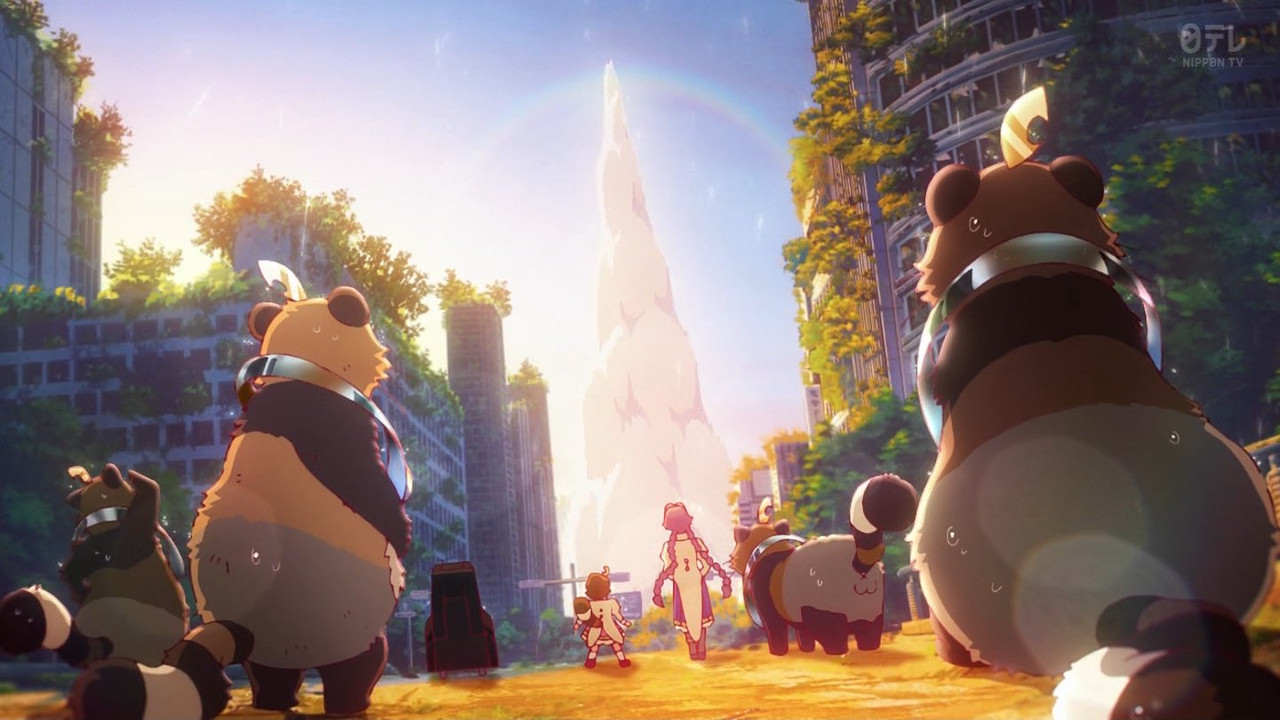


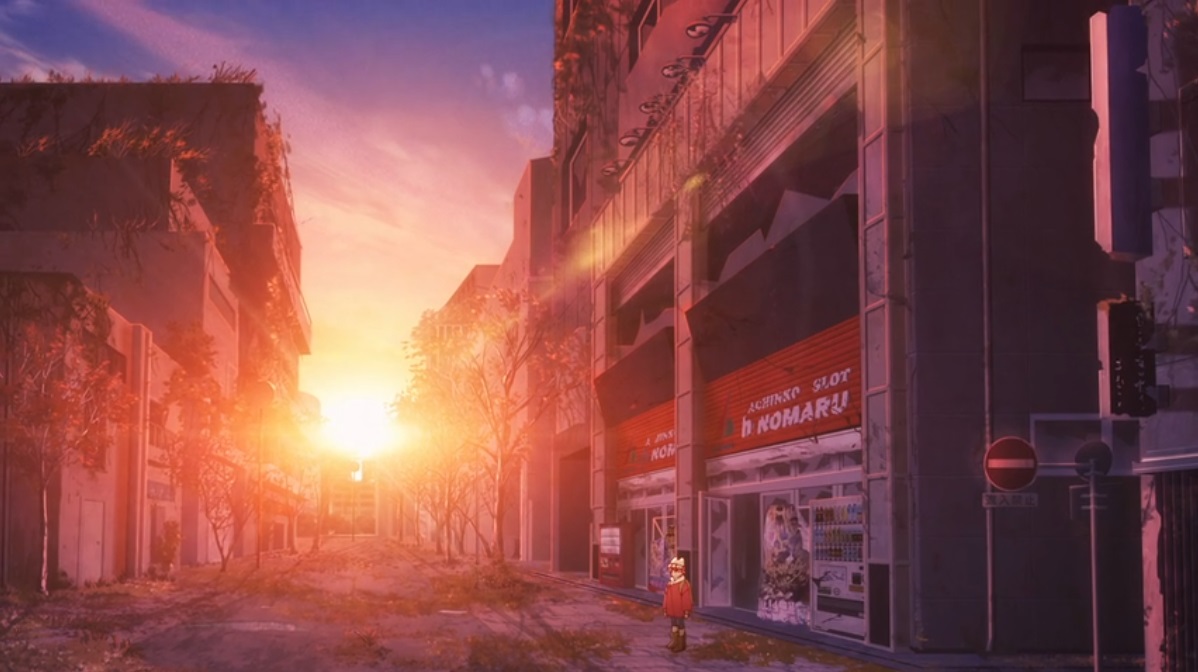
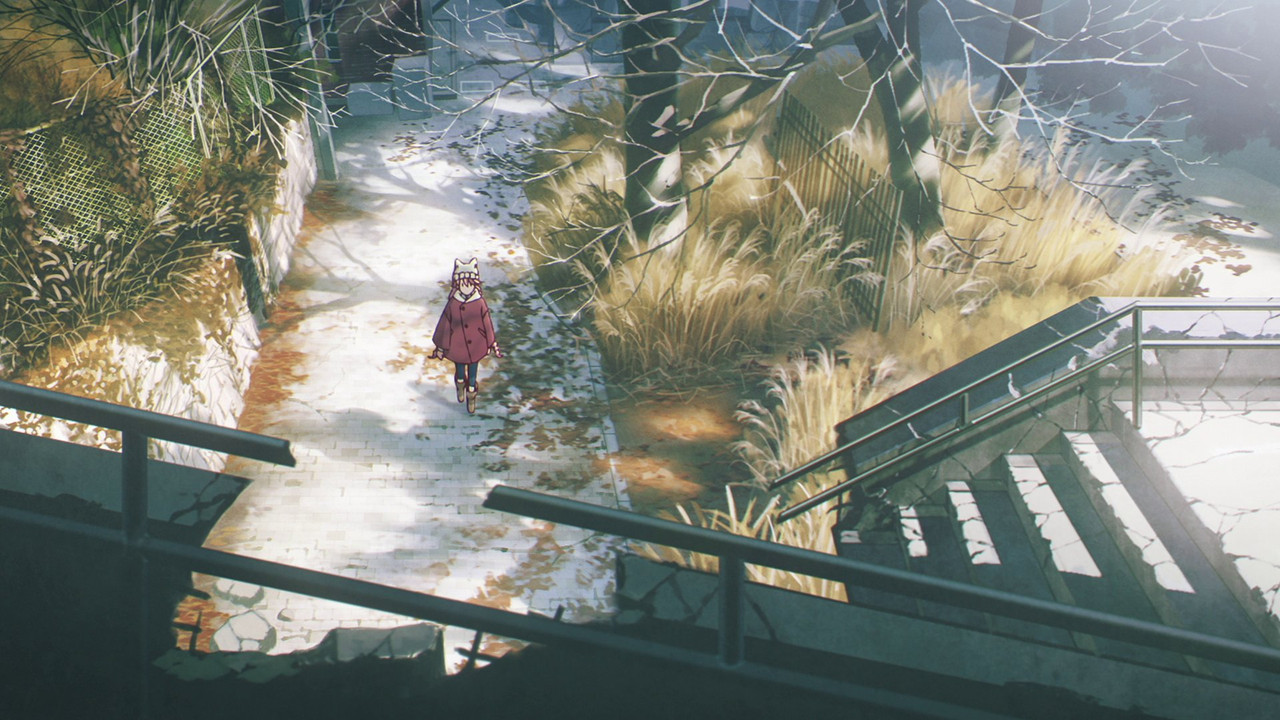
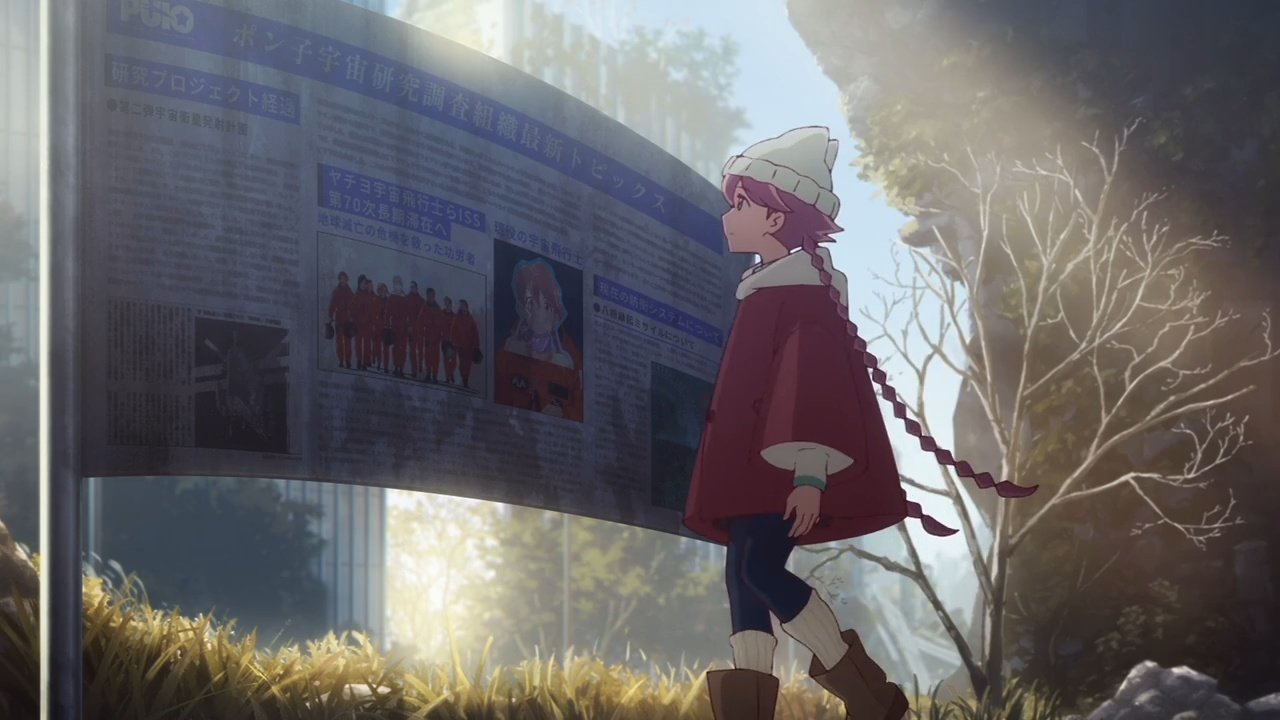
(Through all the fun and wackiness, the melancholiness of the show did not change. It may have faded in terms of its prominence, but it was always there. The characters just have to learn to cope with it.) Undoubtedly, one of things I always appreciate the most is unrestrained creativity. Just writers and authors letting their ideas flow. It might not be “perfect”, it could be a bit rough around the edges, it might be so wacky that it breaks the confines of what an ordinary person could ever imagine, but in the end, it is what they chose to do. Even if Apocalypse Hotel ended up not working out, I would have still appreciated it greatly. There is nothing more powerful than a group of people with crazy ideas about a story, and having it come to life. Truly a beautiful thing. Full props to Kana Shundou on his directorial debut, and everyone else who had a hand in this. I hope they all get many more chances to work on anime in the future. That gacha money from Uma Musume was definitely put to good use.
I was wondering though, what would end the world faster, mass pollutants, or not having a shower cap?

SIMILAR ANIMES YOU MAY LIKE
 ANIME AdventureShoujo Shuumatsu Ryokou
ANIME AdventureShoujo Shuumatsu Ryokou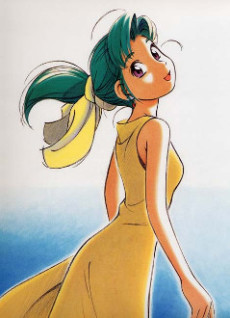 OVA Sci-FiYokohama Kaidashi Kikou
OVA Sci-FiYokohama Kaidashi Kikou ANIME AdventureShuumatsu Train Doko e Iku?
ANIME AdventureShuumatsu Train Doko e Iku? ANIME ActionHouseki no Kuni
ANIME ActionHouseki no Kuni ONA MysteryTasokare Hotel
ONA MysteryTasokare Hotel ANIME AdventureTengoku Daimakyou
ANIME AdventureTengoku Daimakyou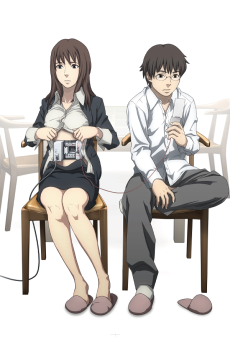 MOVIE Sci-FiEve no Jikan Movie
MOVIE Sci-FiEve no Jikan Movie
SCORE
- (4/5)
TRAILER
MORE INFO
Ended inJune 25, 2025
Main Studio CygamesPictures
Trending Level 8
Favorited by 645 Users
Hashtag #アポカリプスホテル



